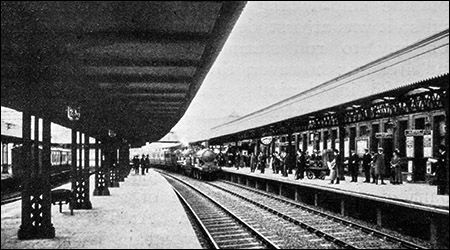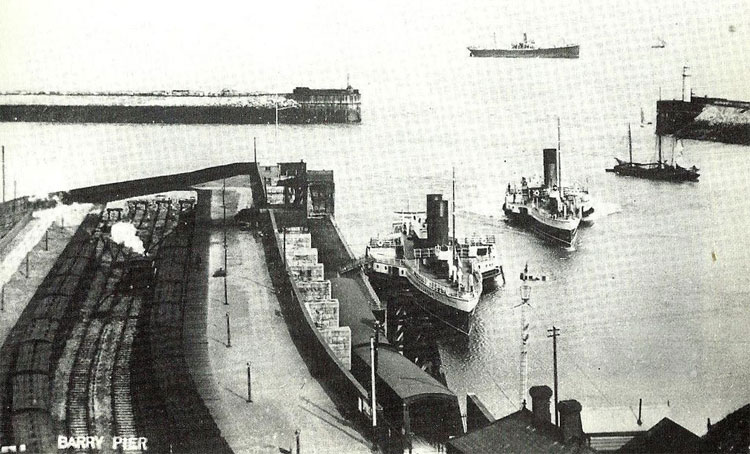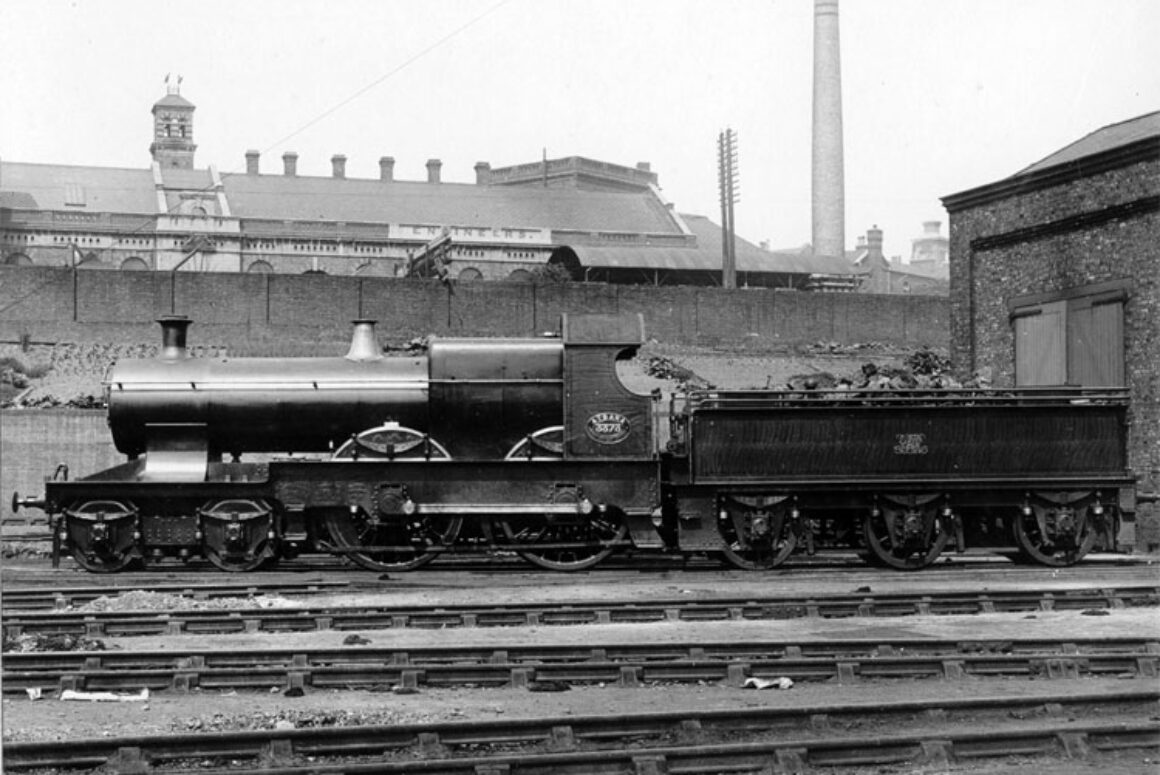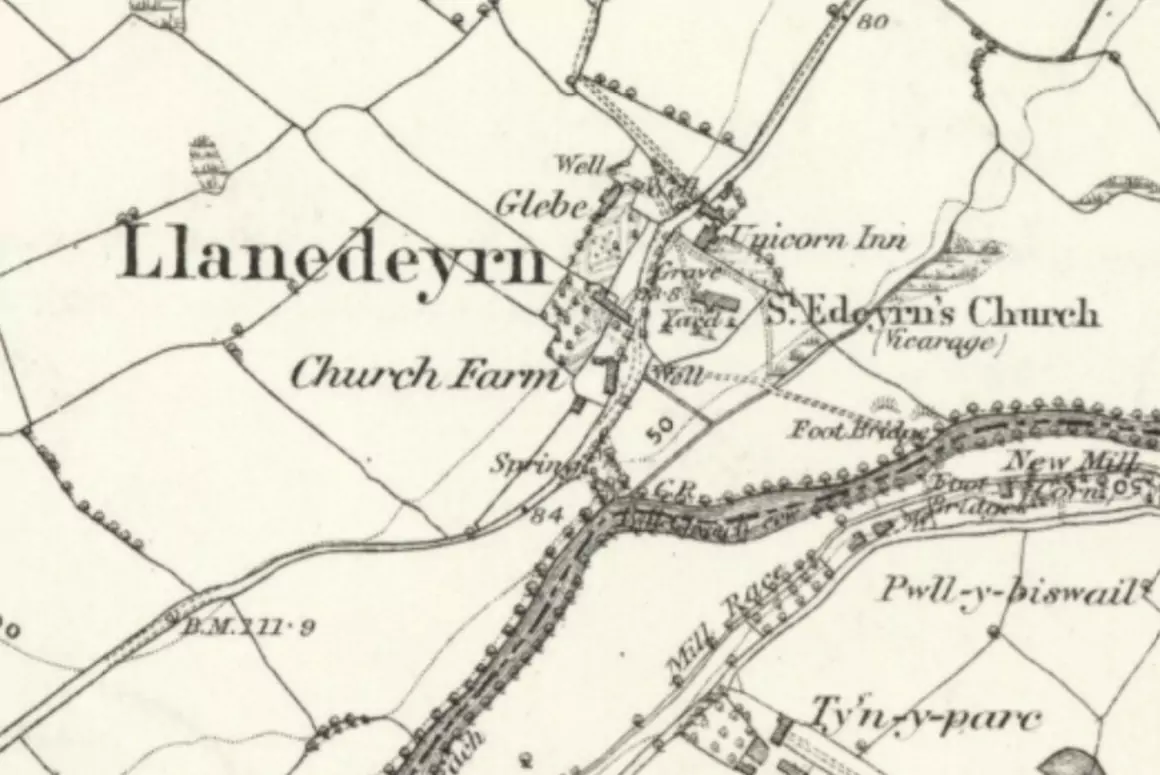![]()
The headline in the South Wales Evening Post in July 1898, ‘Racing An Express Train.’ does not come anywhere near indicating just how irritated the Cardiff police were becoming with 13 year old John Ring, who was charged with trespassing on the Great Western Railway. The boy was a complete pain and was essentially getting on everyone’s nerves. He seemed to believe that he was immune from prosecution because of his age and so was always hanging about on the railway, putting himself at risk, He’d been seen running in front of an express and only narrowly escaped being run over by it and had also been seen throwing stones at the trains. When arrested, Ring had offered a number of incorrect names. He was warned that if it happened again he would be whipped. I think the constables were ready to do it, there and then.
Up in Welshpool, their childhood pleasures were much more innocent, because July 1898 was the occasion of the Church Sunday Schools’ outing to Aberystwyth. And what a time they had. Over a thousand tickets had been sold and excitement at the prospect of seeing the sea again was palpable. ‘All along the route every fresh object of interest evoked shouts of keen delight.’ On arrival they all rushed to the seaside and took to Constitution Hill and the cliff railway. However, this being Aberystwyth, soon it began to rain and many of the children sheltered from it for two hours at the station before the train took the home to Welshpool by 11.00 pm. It must have been a long day for the poor little mites.

Attention in Llandudno was on different issue entirely, and the press extolled the inestimable virtues of a day trip on the train to Snowdon, which ‘may be ascended either on foot or by the new mountain railway, ‘A lovelier situation than this cannot be imagined.’ Possibly so, but you couldn’t say this about Grangetown in Cardiff.
Things were not so happy there to such an extent that ‘A Ratepayer’ sent a letter to the South Wales Daly News about refuse is being deposited on the railway opposite Grangetown Station. The stench from this deposit, which consists of putrid fish and other refuse, is sometimes enough to “knock one down.” This nuisance should be removed at once.’ It is hard to disagree.
At New Quay there was an ‘alarming accident at the railway station.’ As the 2.42 p.m. train was leaving for Aberystwyth George Evans, a porter, tried to jump on to it, but slipped and fell between the platform and the carriage. He was dragged along for several yards before the train was brought to a standstill. When the reporter made enquiries ‘he was found to be slightly better, but still suffering much from his bruises’. Well, it has always been a man’s life at New Quay station.
There was even more drama in Barry, which is not unusual, I am sure you will agree, as the Barry Dock News explains. A number of prisoners were being transferred from Barry Docks to Cardiff gaol by train when one man, ‘slipping his links’, escaped. He was promptly pursued by a police constable. They are always ever-alert in Barry. The chase proved to be an exciting one; ‘the runaway prisoner divested himself of his coat and vest, and displayed all the appearances of being able to do a sharp sprint.’ But, of course, he was apprehended and was sent on to Cardiff under escort on the next train. ‘The incident created a good deal of excitement in that part of the town.’

But that wasn’t enough for the Barry Dock constables. They appear to have developed a sudden and worrying addiction to excitement. Thus, when they were told by Wolverhampton detectives that George Rossiter was in town, their joy was unconfined. Rossiter was wanted for fraud. So they received information; they formulated a plan. They went to the Railway Station, and joined the last train to Cardiff and arrested their man at Cadoxton station. Whether Rossiter said ‘It’s a fair cop, but society is to blame,’ isn’t documented, but an officer from Wolverhampton turned up and escorted him home. Another job well done.
Understandably, a claim for compensation for personal injuries was made by Mrs Moeller against the Great Western Railway Company in July 1898. She said that while on Cardiff Station she was hit by a trolley that was being pushed by a Post Office worker. She said she didn’t see it and neither did she hear the cry of ‘Mind the barrow!’ The first the post man knew about it was when he saw her on the ground. Poor Mrs Moeller suffered from shock and a deep wound behind the ear. She was awarded £10, plus expenses and costs. Quite rightly, too. I would say.
But not every court case had such a positive outcome.

The North Wales Express carried news from the Caernarvonshire Assizes where Jane Griffiths, ‘an elderly woman, living at Port Dinorwic (known today as Y Felinheli) brought an action to recover damages from the London and North Western Railway Company for the loss of her husband, a stone mason, who was killed on the railway line. Mr Griffiths was crossing the lines at Dinas, about half a mile from the Port Dinorwic Station, when he was knocked down and killed by the 7.25 a.m. train from Carnarvon. It was claimed that the engine only whistled its warning when it was merely four yards away from the deceased. Mrs Griffith’s counsel argued that the railway company was guilty of gross negligence, firstly because of the absence of a warning, and by not employing a crossing keeper especially since there was a curve on the Carnarvon side which compromised visibility. In response, the railway company said that it had been the duty of the deceased to have used his eyes and ears to protect himself. I felt quite sad when I read that the court dismissed Mrs Griffiths’ claim. I am quite sure that she needed the money.





